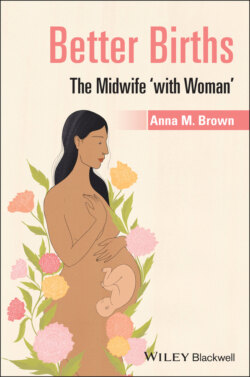Читать книгу Better Births - Anna Brown - Страница 27
Ethics and Standards
ОглавлениеIt is often challenging for midwives to make decisions which are appropriate and right for the childbearing women and the families they care for (Katz Rothman 2013). Childbirth is a social phenomenon and is created through the midwife and mother relationship and responsibilities through this social process (MacLellan 2014). Moral actions, underpinning the childbirth phenomenon, are guided by ethical principles in clinical situations to support safe and effective care based on principles of ethics (McCormick 2013).
One approach to ethics, in relation to midwifery practice, is the four principles approach, as identified by Beauchamp and Childress (2013). The principles of respect for autonomy, beneficence (do good), non‐maleficence (minimise harm) and justice (treat people fairly) map well onto the profession's code (NMC 2018). The Code (NMC 2018) specifically emphasises the preservation of safety through prioritising people, effective practice and promoting professionalism and trust. The ethical importance of safety (Chadwick 2015) for women is supported by the four ethical principles: respect for autonomy supports and respects autonomous decisions by both woman and midwife; an obligation not to cause harm through the principle of non‐maleficence; avoiding harm and calculating risks to ensure positive and beneficial outcomes through beneficence; and justice which ensures a fair distribution of risks, benefits and costs (Foster and Lasser 2011).
An interesting approach to ethical midwifery practice is presented by MacLellan (2014), suggesting that the role of care and responsibility may be embedded in actions and judgements through an interpersonal relationship between mother and midwife within a relational model as an ‘ethic of care’, also known as care ethics (Gallagher 2017). This approach is concerned with contextual details within a valued social relationship that is individual to the mother (Newnham and Kirkham 2019). In this model, care is balanced with responsibility of the midwife to ensure compassion and adhere to the principle of non‐maleficence and accountability. This relational support ensures that midwives seek to fulfil women's expectations of their birthing outcomes and is reinforced through the choices offered by midwives when women are in control and empowered through their experiences (Dodwell and Newburn 2010).
